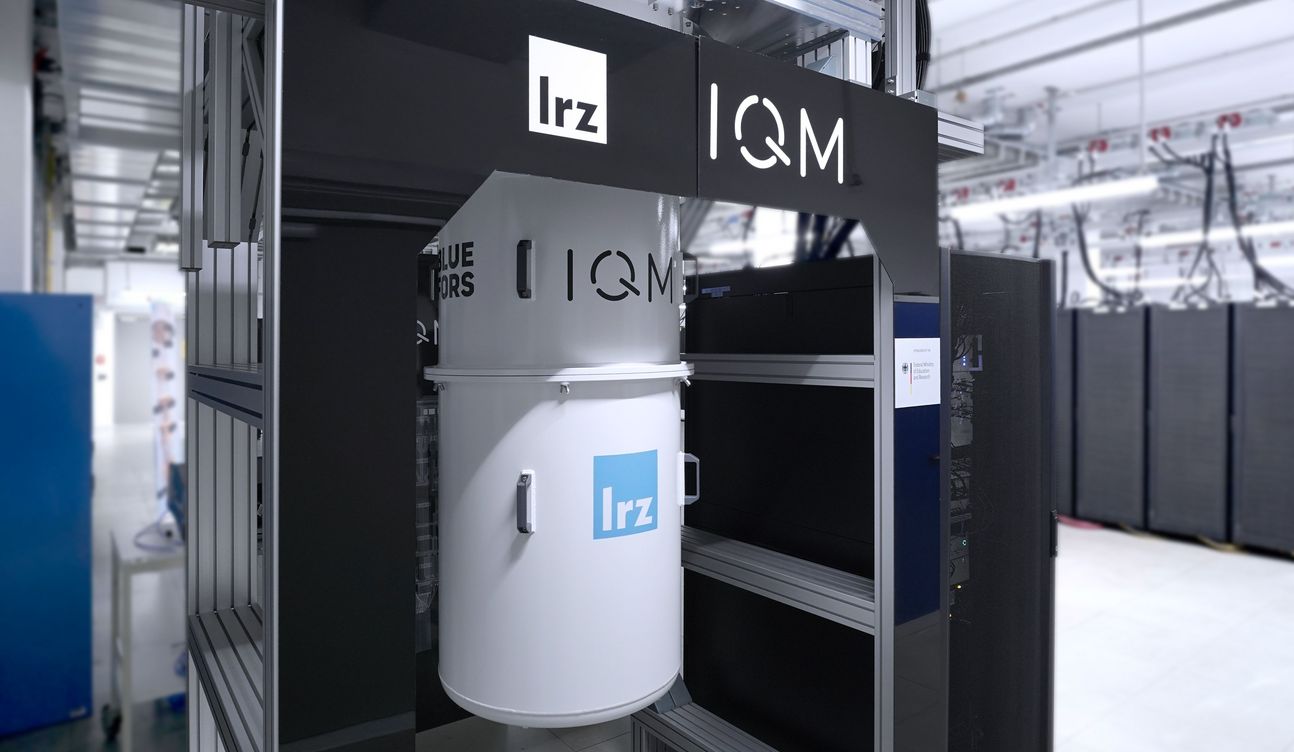The first operational hybrid quantum computer in Germany was presented to the public today at the Leibniz-Rechenzentrum (LRZ). For the hybrid system, called Q-Exa, a quantum processor with 20 superconducting qubits from IQM Quantum Computers has been connected to LRZ's classical supercomputer SuperMUC-NG.
The LRZ will soon make Q-Exa available to the research community. Prof. Rudolf Gross, Scientific Director of Munich Quantum Valley (MQV), sees this as a great opportunity: "For the research teams of MQV and their industry partners, this important innovation offers unique possibilities for developing novel quantum algorithms and testing promising use cases.”
The Munich Quantum Software Stack, which is being developed by specialists at the LRZ in collaboration with other MQV member institutes as part of the MQV consortium Q-DESSI, also makes a significant contribution to the usability of Q-Exa. Among other things, the software stack provides the necessary interfaces between classical and quantum computers, enabling, for example, data exchange between the two technologies. With Q-Exa, future research results of the Q-DESSI consortium can now be tested on an operational system and the development work can be intensified.
Hybrid quantum computing is intended to help make quantum computers accessible through the infrastructure of computing centers and bring them out of the laboratory. Q-Exa is not located in a laboratory, but in the immediate vicinity of the supercomputers at the LRZ. In addition, there are plans to use quantum processors integrated into supercomputers to accelerate high-performance computing. For this purpose, hybrid algorithms are being researched, i.e., algorithms of which only a part is executed on a quantum computer and the rest on a classical supercomputer. Hybrid algorithms are an important area of the application research within MQV.
Q-Exa is the result of a collaboration between LRZ, IQM Quantum Computers, Eviden, and HQS Quantum Simulations funded by the Federal Ministry of Education and Research (BMBF).
The LRZ press release on today’s Q-Exa presentation can be found here.
